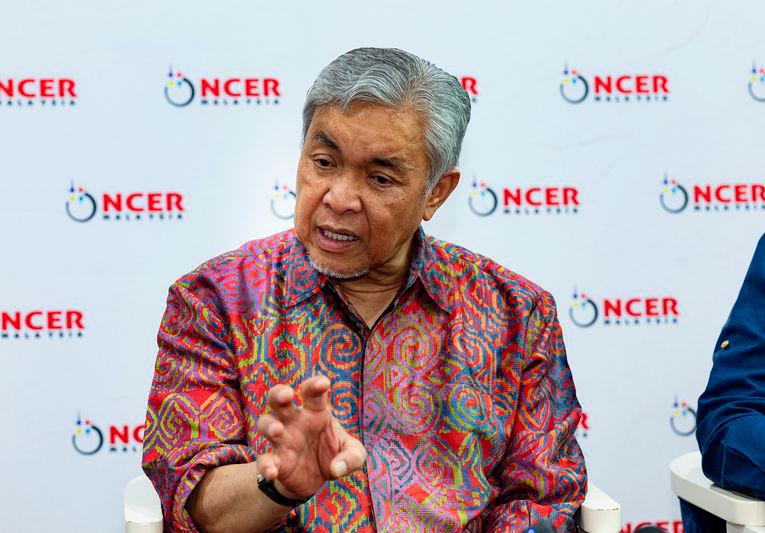PUTRAJAYA: Malaysia is expected to face several negative impacts, including health issues, water supply shortage, forest or bushfires, haze, and reduced agricultural yields, from the Southwest Monsoon, which is expected to begin this month and last until September, according to Deputy Prime Minister Datuk Seri Dr Ahmad Zahid Hamidi.
As such, Ahmad Zahid, who is also the Minister of Rural and Regional Development, reminded all disaster management agencies to take active steps to mitigate related disaster risks.
“This can be done through efficient governance based on disaster risk reduction in development planning, land use, water management and maintenance, which fall under state authority and need to be emphasised to prevent continuous disasters and ensure sustainable development for the well-being of the people, especially future generations.”
He said this in a statement after chairing the Central Disaster Management (JPBP) Meeting here, which was also attended by all state secretaries, who are also chairmen of their respective state disaster management committees (JPBN).
Ahmad Zahid said the Southwest Monsoon is relatively drier for the entire country, and most states will experience minimal rainfall.
He said the meeting also acknowledged the myGEMS Hydrogeological Database System owned by the Department of Minerals and Geoscience (JMG) and the availability of groundwater resources that can be used as an alternative water source, including for extinguishing fires in peatland areas.
“There are 640 active wells for domestic use and 104 wells in peat and forest areas with a capacity of 176.13 million litres per day.
“All JPBN have been told to take appropriate steps to collectively face such situations by asking water operators to improve their operational efficiency and provide logistical support to mobilise water supplies to affected areas,” he said.
For fire extinguishing operations, Ahmad Zahid said response agencies are on standby with the proper logistical preparations to handle open fires, and he was generally satisfied with the agencies’ preparations for the hot and dry weather during the Southwest Monsoon season.
Meanwhile, the Deputy Prime Minister also said the Department of Environment (DOE) also reported that a total of 2,030 open burning cases were investigated, with nine cases brought to court, 630 referred to other agencies, and 100 compounds totalling RM200,000 issued from Jan 1 to April 30, this year.
At the same meeting, Ahmad Zahid also launched the Guidebook to Community-Based Disaster Risk Management (CBDRM) in Malaysia, produced by the National Disaster Management Agency (NADMA) in collaboration with the College of Engineering Studies at Universiti Teknologi MARA (UiTM) Shah Alam.
The guidebook aims to ensure that CBDRM programmes can be effectively implemented at every state and district level in a standardised manner in line with the objective of forming a resilient community through preparedness activities.
The guidebook can be downloaded from NADMA’s website at ww.nadma.gov.my.









